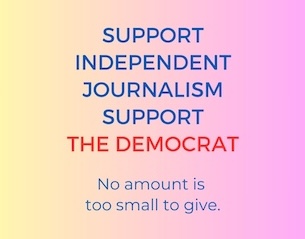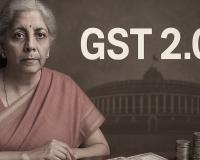As the challenges of COVID-19 unravel and ravage humanity across the globe, one recurring discourse has been to use this disruption to reimagine the economic architecture. Is it possible to convert the pandemic into a launch pad for a more humane, inclusive, and sustainable world?
The idea of impact investing is one such powerful idea, conceived to challenge the hegemony of greed and the desire to maximise returns at all costs, by taming capital into a more humane, sustainable, and inclusive tool for change.
In my journey of two decades chasing this dream of making impact a real alternative to mainstream global capital pools, I have learnt that money is a complex subject. And because most global capital is regulated by government (but not controlled by it), I’ve also realised that it is nearly impossible to tame global capital’s natural instinct.
But the disruptions caused by COVID-19 give me hope that, despite these limitations, impact investing may have a major role to play over the next decade in reimagining a new world—a world with no hunger, no poverty, and no inequity.
Commercial capital is driven by greed
The global capital pool is roughly USD 300 trillion and its primary objective is to maximise returns within the boundaries of identified risks. Capital markets work on mandates, and so far, they have focused almost entirely on this single parameter—maximising returns.
Over time, there have been significant causes that have knocked on the doors of capital—from philanthropic asks to help the vulnerable and marginalised, to demands to balance the reward equation to avoid concentration of capital, to calls for stopping investment in extractive industries such as oil, mining, and fossil fuels. However, none of these appeals have influenced the mandate of capital in any significant manner.
“Some among the affluent try to make an impact through philanthropy, but the contribution pales against the destruction caused by the ‘greed is good’ approach.”
The disdain for these asks is not because of ignorance of the risks that arise from social inequity or climate change. It is because the leadership of capital markets probably believes that the giant machine of capital allocation has little to do with these asks. They believe that corporate social responsibility (CSR) and philanthropic activities is where these demands should be directed, since capital markets must focus on an unadulterated vision of return at all costs.
Not surprisingly, this leadership represents the privileged and powerful. While they accept in hushed tones the downsides of this approach for the poor and marginalised, they consider them as collateral damage to the holy quest for capital multiplication.
An equally important factor is that while the world of capital plans for long-term risk management, its incentives as a global collective are more aligned to quarter-on-quarter performance. Long-term-ism is a philosophy to pontificate, not to act. While those who are conscious among the affluent do try to make an impact using personal wealth through philanthropy, the contribution pales against the destruction being wheeled in by the mainstream ‘greed is good’ approach.
The idea of impact investing
Impact investing—an idea mooted at the turn of century in India and the USA—believes that one can do good to do well. The idea took some time to find a toehold in the world of capital—the early adopters and leaders were focused on demonstrating that making impact has powerful potential to deliver returns. One of the goals of impact investing was also to wean away large pools of commercial capital from its single minded pursuit on maximising return, and instead deploy it to build businesses that were inclusive, sustainable, and impactful, while delivering returns.
What counts as impact
During its early days, the idea was seen as utopian, and marginalised as a fringe innovation, as an alternate to philanthropy, rather than a challenge to the hegemony of commercial capital and its bottom-line pursuit. This has changed over the last decade. Today, with USD 500 billion allocated to impact investment, some of the largest aggregators of capital are now committed to this idea and see it as an important tool of change.
As one of the early messengers, I have often wondered if commercial capital has simply co-opted the idea of impact investing to make sure it does not challenge the capital hegemony, by taking away the focus from its true potential. Because, while it has pushed people towards measuring the outcomes of their investment, it has not changed the key architecture of how capital is deployed.
Mainstreaming impact investing
Impact investing has the potential to disrupt the global economic order and threaten the established and deeply entrenched world order. And the best way to neutralise a great idea and to preserve the status quo, is to co-opt the idea and mainstream it. Impact investing as an idea is therefore being co-opted by the capital aggregators, so that in the guise of numbers and outcomes, its soul can be trampled.
“Today, the language of the impact investing is no different from the language of mainstream capital.”
The idea of ‘doing good to do well’ is being replaced by ‘doing good and doing well’, thereby separating the impact from the process of capital allocation. This allows for minor tweaks in the current economic architecture and lets us continue to do what the capital world has done for ages, and be seen as impactful and sustainable.
As we stand today, most people who entered impact investing believe that it allows you to have your cake and eat it too. That it is possible to change the world while satisfying your greed. By co-opting the word impact, the idea of change has been diluted and compromised. Today, the language of the impact investing is no different from the language of mainstream capital.
COVID-19 offers us hope that things will change
To say that COVID-19 is a pandemic and a health hazard is obvious. But it is also a virus that has democratised fear, as it ruthlessly impacts everyone, including the rich and the powerful. Ministers, bureaucrats, CEOs, fund managers on one side, and nation states with powerful armies and some of the highest per-capita incomes on the other, have all found themselves tamed by the onslaught of a virus weighing just a few micrograms.
With the wheels of economies coming to a grinding halt, the managers of capital have seen a decimation of wealth as never before. It has hit those who never thought that such risks could manifest themselves and result in such destruction for them. Moreover, they have no idea as to how deep, long, and damaging this could be going forward.
‘Greed is good’ is dead
The privileged minority that controls the USD 300 trillion capital pool, which has always looked at risk and return as a continuum, is faced with an undefined risk that destroys value. It is not about maximising returns anymore, but protecting value. Can they protect the USD 300 trillion from losing its value? For the first time, it is not a question of earning less returns on the capital but actually losing it, and therefore, the focus is on the return of capital than return on capital.
COVID-19 has demonstrated to the money managers that risks that seemed like theoretical constructs by scientists, or showed up as glaciers melting in Antarctica, or rising sea levels in Southeast Asia, can strike and paralyse the global economy. The pandemic has brought the unsustainability of the outside world inside the boardroom of the rich and powerful. There is fear now.
Resilience trumps return
If greed is dead, what then is the new world order? It is one where resilience trumps return, where survival and sustainability of capital far outweighs the return that capital can generate. Given this, the best-case scenario for anyone is ‘resilience with return’, since ‘return at all costs’ is not an option anymore. This requires asset managers to take a long-term view of their actions on the society, before they take a view on the immediate return.
This is exactly what impact investing offers. It encourages the world of capital to embrace sustainable investing for good returns. It seeks capital to be invested in a way that uplifts people and society, sustainably.
Impact is the new mainstream
Given COVID-19 and its fallouts, mainstream capital now has to mimic impact investing and look, feel, and act like it is making impact, rather than the other way round.
In the new economic world order, the only thing that will matter is an inclusive and sustainable world. And when that happens, capital, companies, and leaders will look to build businesses that further equity, inclusiveness, and sustainability as a core strategy and seek shareholder returns that draw from this.
This new world order will also bring about other fundamental changes
First, capital will have to face a much higher level of accountability and scrutiny on the idea of impact, inclusion, and sustainability, and it may not be enough for a business to just claim impact. The idea of preparing a balance sheet and developing an accounting standard that takes into account the impact on sustainability will be pursued with same vigour over the next decade, as were accounting standards in the last century.
Second, we will require significant technological interventions, because impact investing by nature takes place in remote and inaccessible regions, where one can only work through technology. Digital transformation in the space of impact will be one of the most far-reaching tectonic shifts that we will see in the near future.
“The quest for resilience will force the world of capital to replace the idea of greed with sustainability, inclusion, and impact.”
Globally, we will also see a shift in geopolitics—from the hegemony of one or two, to several blocks of power. And even though it has become a cliché now, I think oil is a passé, and we will see investments in greener energy. Climate, energy, environment, and sustainability—these will become buzzwords of the future. There will be new roles for technology, new models of sharing, and new sectors—health, water and sanitation, hygiene, and so on—will lead the way capital is deployed.
Overall, the quest for resilience will force the world of capital to replace the idea of greed with sustainability, inclusion, and impact.
Change will come because it is about self-preservation for the rich
The world has seven billion people but very few control capital. And while 99.9 percent of humanity may forget the trauma of the COVID-19 crisis few years down the line, the few who control global wealth—those with the money and influence—are unlikely to forget the impact of this pandemic.
The world will change not because people will remember the trauma caused by the migrants walking; it will change because the virus has permeated the fear right inside the boardrooms of the largest companies, and the family offices of the richest people. The changes will come as self-preservation for the rich becomes a priority, and global shifts only take place when the powerful are fearful.
ooo














